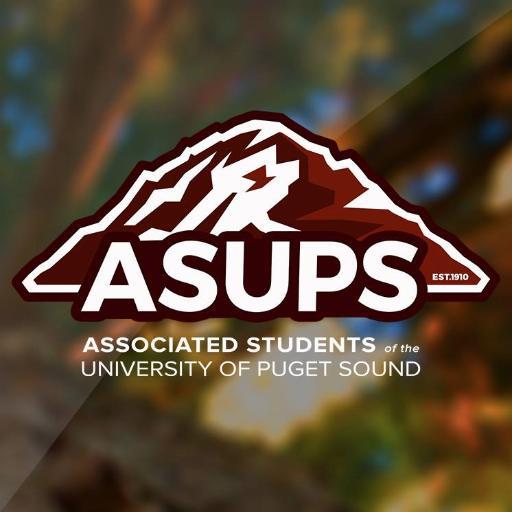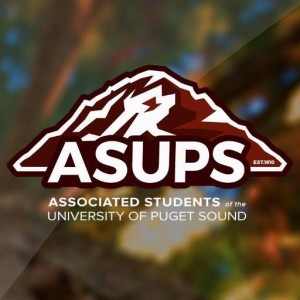
By Marcelle Rutherfurd
Associated Students of the University of Puget Sound (ASUPS) is the student government organization here on campus. At the end of last semester, Amanda Diaz ’18, the President of ASUPS, sent out a list outlining goals that the organization had accomplished in Fall 2017 and what they hoped to do in Spring 2018.
Diaz wrote in the email that ASUPS had accomplished goals such as revising the ASUPS ByLaws, creating and beginning endowment of the Asian Pacific Islander Club (APIC) Scholarship and assisting students with Deferred Action for Childhood Arrivals (DACA) renewals. Diaz went on to list some upcoming projects for ASUPS, which included Lumbershoot (an annual concert put on for University students), and student stipend review in the bylaws.
Student positions on campus that receive stipends from ASUPS had to fill out informational forms this semester and submit them, something that they had never done in the past. Students who are in leadership positions in student media (KUPS, The Trail, etc.) receive their stipends from ASUPS.
“The forms were to provide the Student Leader Review Committee with the information necessary in order to review the student stipend amounts,” Jenna Mobley, Vice President of ASUPS, said.
Apparently the bylaws concerning student stipends and how they should be calculated and distributed had not been looked at or updated in quite some time.
“The Student Stipend Review Committee was added to the ByLaws and passed by Senate in December. Article V, Section 12 of the ASUPS bylaws has the specifics of that committee, but basically all leadership positions in ASUPS that receive stipends are now being reviewed by this committee,” Mobley said.
“There was no previous mechanism for determining stipend amounts. For example, when I was elected, I was asked to set my own stipend amount. Amanda and I chose not to change our stipend amounts and it looks like they haven’t been changed in quite some time, but it still shouldn’t be up to the person holding the position, in my opinion, in the first place. And what happens if they do need to be raised? How does that take place?” Mobley continued.
Mobley and other members of ASUPS took initiative to improve this system and devise better methods for the future.
“The forms asked for student leadership position descriptions, any supervisory responsibilities, approximate time worked per week, if the person holding the position is suggesting an increase/decrease, whether it was a new position, and whether this would be filled by someone who isn’t a student. This last question is for Human Resources to use when determining if this position is a student leadership position or a student staff position,” Mobley continued.
“The committee is planning to meet sometime next week and will review the forms and then suggest stipend amounts to Senate,” Mobley concluded.
The list of goals and accomplished goals that Diaz sent in the email to campus was impressive, and Diaz reflected on how she had sought to improve and progress ASUPS during her presidency.
“A lot of our goals were centered around our core sense of values. Our core sense of values were equity, justice, community, accessibility and transparency. And we sort of organized our goals and how we wanted to go about our goals based on those values,” Diaz said.
“Equity was kind of thinking about how we wanted to prioritize groups on campus, populations or clubs who have historically not been supported institutionally. Whether that’s monetarily or like just any sort of support physically, going to events and stuff…just thinking of how we can support those groups who have historically been underrepresented or unsupported,” Diaz continued.
Diaz went on to highlight how the other values were reflected in the goals that she accomplished and set during her presidency, discussing how ASUPS sought to become a more just, accessible and transparent organization.
“Transparency, that’s pretty simple. ASUPS tends to hide a lot of administrative things and in the past hasn’t been as open or accessible in a lot of ways that people want,” Diaz said.
ASUPS published a lot of their material on their website this past semester.
“Building communities is extremely important for us, trying to sort of do programming or other events that can cultivate a more inclusive and welcoming community that ASUPS should be fostering,” Diaz said.
Diaz went on to note that the location of the ASUPS offices on the second floor of Wheelock separates the government from campus. For physically disabled students it is incredibly difficult to access. Diaz explained that ASUPS representatives tried to be more physically present at community events on campus in order to foster a deeper student connection.
Students reflected positively on Diaz’s presidency as well, noting an increase in accessibility.
“I think Amanda Diaz has done a great job as ASUPS president – in my three years here, I don’t think ASUPS has ever felt as accessible as they’ve felt this past year,” Lindsey Hunt ‘19 said.
Diaz reflected positively on her presidency, but highlighted that there are many areas to improve in the future.
“Even though I think ASUPS has made some waves or has started conversations or has made some shifts on campus, there’s always, always so much more to do and the work is never going to be done.”
Diaz stated that in addition to having a lot of continuing work in the future, ASUPS is often restricted by bureaucratic barriers within the school administration as to how much they can do on their budget or with their resources. Executing some of their bigger goals takes time and energy from the officials.
“For example, it was called our Wellness To-Go Vending Machine, an emergency contraceptive vending machine, that was our first goal over the summer we we’re like ‘Let’s get this done!’ and it’s still not here. There were so many committee meetings and things to be approved and we had to talk to the Washington state health department. It just hasn’t gone through yet,” Diaz said.
Despite these various roadblocks, Diaz is still pleased with how the year went. She feels as though the reputation of ASUPS on campus has changed for the better.
“In a larger sense we’ve also shown that ASUPS isn’t just this bank account that supports clubs. It’s an organization that has a lot of symbolic power and has a lot of momentum and institutional support to do a lot of symbolic statements. Some of those examples are, we’re trying to pass a resolution in the senate acknowledging the that [The University] is on indigenous land, or a resolution supporting Black Lives Matter.” Diaz said.
In her advice to the next ASUPS President, Diaz highlighted the importance of thinking equitably. She emphasized giving proportional support to different student groups on campus who haven’t been supported in the past and might need more attention than others.
As spring semester gets underway, ASUPS is preparing to buckle down on the remainder of their goals before the next round of officers are voted in. Students who are interested in running for ASUPS positions can pick up election packets from the offices on the second floor in Wheelock.

